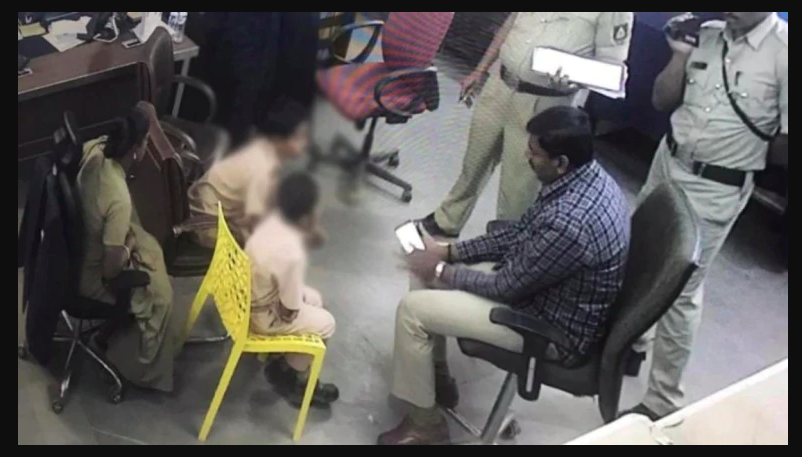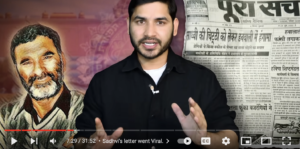
By Geeta Seshu
Sedition, a colonial-era law that should have been confined to the dustbin of history, has found new victims over the last month: over 50 participants of the Queer Azaadi March in Mumbai have been charged with sedition for allegedly raising slogans in support of JNU scholar Sharjeel Imam; schoolchildren in Bidar are questioned for the fourth time by police over lines in a school play against the CAA-NRC-NPR even as the headmistress and a parent are in jail; police in Mysuru lodge a sedition case against students and organisers of a protest where a ‘Free Kashmir’ poster was held up.

In most of the cases of sedition, including these cited above, the actual incident itself acquires a larger than life presence, aided by mischievous shares and comments on social media. Videos on Facebook or Twitter comments add to raising the temperature, robbing the actual utterance of any nuance, any discussion or debate. Indeed, one Twitter user actually recommended the application of sedition on the protestors!

We are in the 71st year of our democracy, teetering on the edge of the precipice. The law of sedition should have gone out with the British but has been retained and made use of, under the UPA as well as the NDA regimes. In the run up to the 2019 elections, the Congress-I moved a huge step forward and its manifesto declared that sedition should be omitted as it had been misused and, in any case, replaced by other laws. The BJP, on the other hand, said that Sec 124-A would be strengthened.
There are multiple judgements of state high courts and the Supreme Court itself that can tell the police of Mumbai, Bidar and Mysuru that the charge of sedition will not stick. In 1962, the Kedarnath case makes the clear distinction between a ‘government established by law’ and ‘persons for the time being engaged in carrying on the administration’; in 1955, the Balwant Singh case judgement tackled whether merely raising slogans is seditious (It said: Raising of some lonesome slogans, a couple of times by two individuals, without anything more, did not constitute any threat to the Government of India as by law established, nor could the same give rise to feelings of enmity or hatred among different communities or religious or other groups) and the Rangarajan judgement of 1989 which clearly states:
In democracy it is not necessary that every one should sing the same song. Freedom of expression is the rule and it is generally taken for granted. Every one has a fundamental right to form his own opinion on any issue of general concern. He can form and inform by any legitimate means.
The democracy is a Government by the people via open discussion. The democratic form of government itself demands its citizens an active and intelligent participation in the affairs of the community. The public discussion with people participation is a basic feature and a rational process of democracy which distinguishes it from all other forms of government. The democracy can neither work nor prosper unless people go out to share their views. The truth is that public discussion on issues relating to administration has positive value.
Or this one:
Freedom of expression which is legitimate and constitutionally protected, cannot be held to ransom, by an intolerant group of people. The fundamental freedom under Article 19(1)(a) can be reasonably restricted only for the purposes mentioned in Articles 19(2) and the restriction must be justified on the anvil of necessity and not the quicks and of convenience or expediency. Open criticism of Government policies and operations is not a ground for restricting expression. We must practice tolerance to the views of others. Intolerance is as much dangerous to democracy as to the person himself.
Why then, are the police so eager to slap sedition on these protestors? Those charged under Sec 124-A of the Indian Penal Code, three of whom have been arrested and currently in jail since their bail process is still on, will take years to establish that they have a right to express their views; that their criticism of the government of the day did not constitute a threat to the State or that their slogans and speeches did not immediately result in incitement to violence.
On the contrary, if we have witnessed any acts of violence at all in the wake of the country-wide protests over the passage of the CAA, it has been by gun-toting youth in Delhi, day after day after day, right under the noses of the police! In fact, one of them – Kapil Gujjar who fired in the air on February 1 in Shaheen Bagh in New Delhi, reportedly shouted”humare desh mein sirf hinduon ki chalegi aur kisi ki nahi (in our country only Hindus will prevail).
If we have heard slogans and speeches that actually incited people to violence, it was from none other than our Union minister of state for Finance, Anurag Thakur (Desh ke gaddaro ko, goli maro saalo ko). The dictum, for it can only be called that, was picked up and repeated by pro-CAA protestors at Shaheen Bagh. And the violent act – that of Kapil Gujjar opening fire – followed suit.
None of these provocative and dangerous acts have attracted charges of sedition. Indeed the police have been so ‘peaceful’ and democratic, following all those legal processes so admirably. According to reports, the youth have been charged under the Arms Act and of attempt to murder. They have been variously remanded to police custody or as in the Jamia shooting case, to preventive custody while Delhi police scramble around to collect evidence about the age of the youth.
That law-enforcers are not being even-handed is clear as day. The wildest and most inflammatory utterances of members of the ruling party have been ignored or downplayed by the police, whether in New Delhi or in Karnataka. Activists in Uttar Pradesh have testified to the undisguised prejudice with which the police have behaved in the outbreak of violence in the state after December 15.
As Abhay Kumar, a JNU research scholar in the same department as Sharjeel Imam wrote movingly, “…in any liberal democracy, there has to be a space where a scholar and activist could freely express her opinion without fear. But that space is shrinking in ‘democratic’ India and it is rapidly shrinking for those who belong to Muslim and Dalit communities.”
Sedition should be repealed. The longer it stays on the statute books, the more it will be misused. If not, we will only see more of the real perpetrators of violence, the state-sponsored attacks on people and the divisive attempts to cast some people and thinking as anti-national and charge them with penal action or incarcerating them for long and punishing periods till they can ultimately prove their innocence of the charge.
Update:
There are various initiatives to condemn and resist these charges. Here are some of them:
Statement by Child Rights Groups, Teachers and Educationists against the
illegal and inhumane actions of the Bidar police affecting children:
Download Teachers and Parents Statement on Bidar arrest
x.x.x
Stop Mumbai Pride Sedition Cases
On 2 February, 51 people were charged with sedition for raising slogans at Mumbai Pride. A young trans student, Kris Chudawala, was systematically targeted, named, and outed on national media.
These charges are baseless and politically motivated in the lead-up to the Delhi elections. As citizens of India, queer folx, and allies, it is our duty to oppose this undemocratic witch hunt. Please sign this petition to condemn charges of sedition against the 51 people involved and speak up about them wherever you can:
Bit.ly/StopMumbaiPrideSeditionCases

